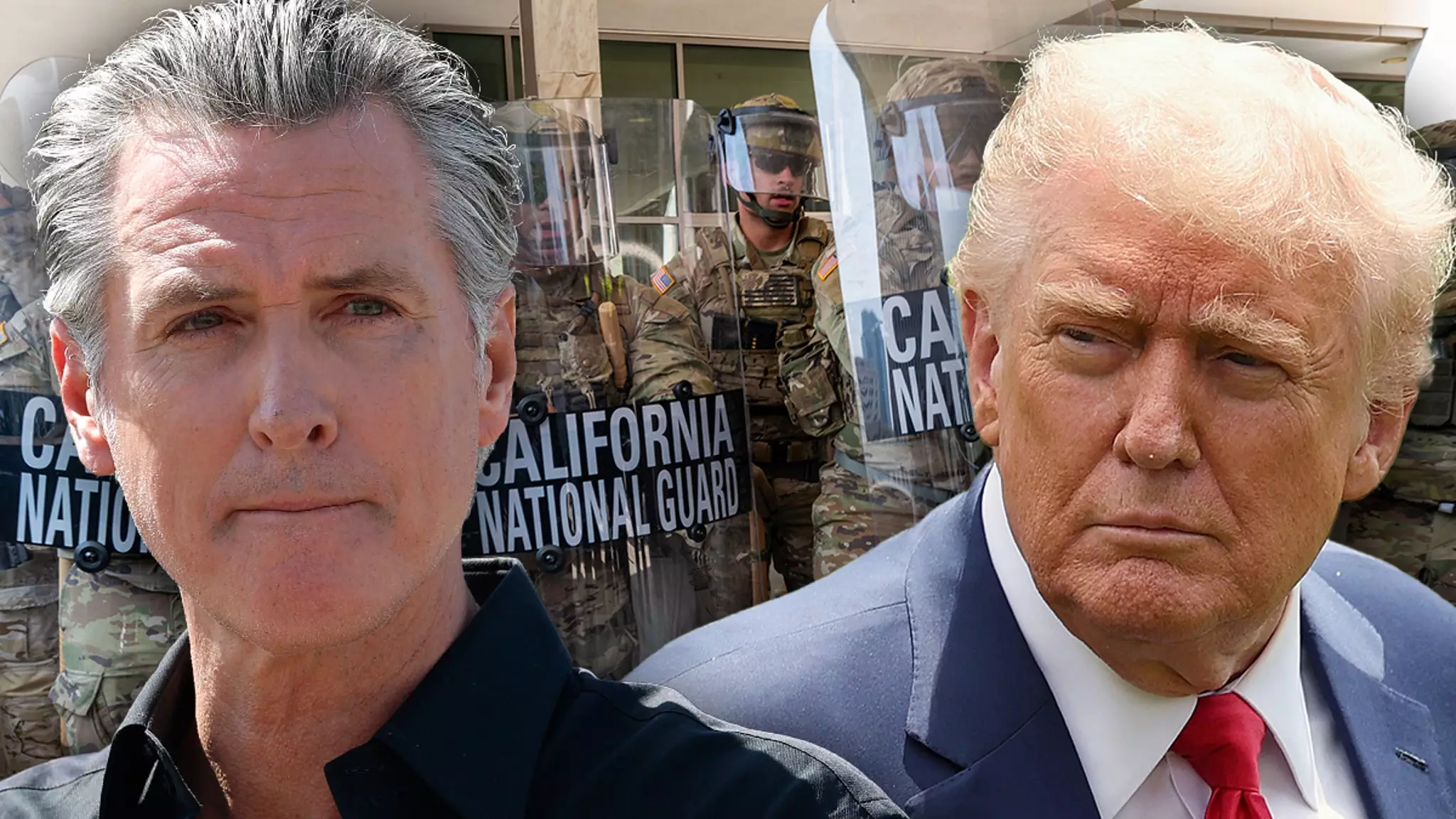In a moment that encapsulates the strained relationship between state and federal governments, California Governor Gavin Newsom has formally commenced legal action against President Donald Trump concerning the deployment of the National Guard in Los Angeles. This lawsuit, centering on Newsom’s assertion of unconstitutional actions by Trump, is a significant manifestation of the ongoing struggle over jurisdiction and power in the face of rising national tensions.
The core of Newsom’s contention lies in his perception of federal overreach. Following a series of protests triggered by federal immigration raids, Trump dispatched the National Guard to Los Angeles. Governor Newsom argues that this decision bypassed essential constitutional protocols. Specifically, he highlights a statute that mandates such deployments to be sanctioned through the state’s governor. This legal challenge is not merely procedural; it represents a broader philosophical debate about the extent of federal power in matters traditionally handled at the state level, particularly in times of civil unrest.
The Political Ramifications of the Lawsuit
Newsom’s lawsuit is layered with implications that extend beyond the legal realm. By calling Trump a “stone cold liar” and accusing him of potential incitement of civil war over immigration issues, Newsom has positioned himself as a prominent voice in the resistance against what he sees as growing authoritarian tendencies from the federal government. This confrontational rhetoric is not just for effect; it taps into the deep-seated anxieties many Californians feel about issues of immigration, civil rights, and community safety.
This event also illuminates the ongoing cultural and political divide across the United States. With one side advocating for stringent immigration policies and the other championing human rights and sanctuary movements, the deployment of the National Guard serves as a flashpoint for these broader ideological conflicts. Newsom’s legal maneuvering is meant to reclaim power for state governance, an essential aspect of American democracy, which some argue has been eroded in recent years due to a trend towards centralized authority.
Implications for Future Governance
Looking ahead, Newsom’s lawsuit could have lasting repercussions for the management of emergency responses within states. If the court sides with Newsom, it will reinforce the principle that local authorities must retain control over their own security forces. This notion is essential for maintaining democratic checks and balances. Conversely, a ruling in favor of the federal government could embolden future presidents to bypass state authorities in times of crisis, setting a concerning precedent for future governance.
In a landscape rife with polarization, Newsom’s legal challenge could also inspire other states grappling with similar concerns regarding federal intervention. Governors across the country might take cues from his actions, either to fortify their own state rights or, conversely, to frame their narratives in support of federal authority. The outcome of this legal battle is essential not only for California but for the broader dialogue about power dynamics in the United States. What this ultimately reveals is that the struggle for authority is an ongoing negotiation—a reflection of democracy in action.

